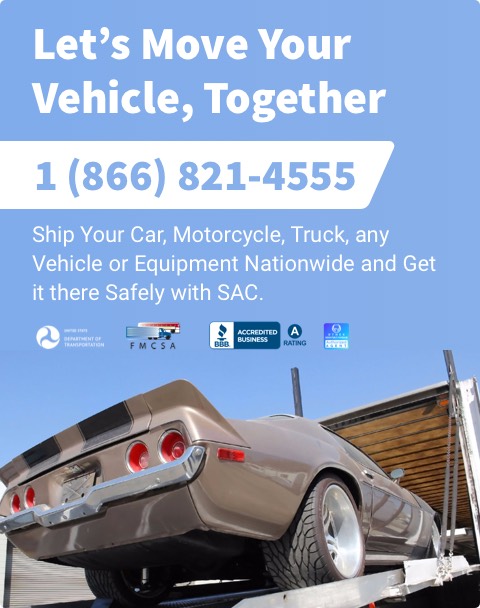The U.S. domestic trucking industry is going through major changes, with shifts towards transactional relationships, increased consolidation, and fluctuating demand. Leaders in the industry draw attention to how these developments affect prices, the caliber of services provided, and the overall strategic environment. In the face of these difficulties, companies such as Ship A Car, Inc. provide dependable solutions that prioritize efficiency, innovation, and customer service for the nationwide transportation of vehicles and freight. This blog article explores the present situation and potential future directions of domestic trucking while providing guidance on overcoming its challenges.
The trucking industry in America has evolved considerably, becoming more welcoming to women, yet challenges still exist. Women from a variety of backgrounds discuss how they got started in truck driving, showcasing the mix of fulfillment and challenges that this industry brings. Discrimination and mansplaining are obstacles women have turned into opportunities for assertiveness and leadership. Previously seen as a weakness, empathy is now seen as an essential leadership trait. Ship A Car, Inc., a woman-owned business, stands out for its dedication to supporting women in trucking through inclusive practices and personalized service.
Based on the results of a recent study, this blog article explores the complex cost comparison between gas-powered and electric cars in the US. It draws attention to how customer decisions across a range of vehicle classes are influenced by the present gas price and stable electric rates. It also looks at the environmental and economic factors that are crucial to the current discussion between conventional and electric mobility, as well as forecasts for how vehicle fuel prices will change over time.
Significant improvements aimed at curbing litigation abuse in the trucking industry have been brought about by recent legislative initiatives in Wisconsin and Indiana. In order to create a more equitable and balanced legal environment for commercial motor vehicle carriers, these states have capped noneconomic damages and permitted the disclosure of non-seatbelt use in injury claims. These changes are essential to keeping trucking businesses operating safely and effectively and shielding the sector from unmanageable financial obligations.

The American Transportation Research Institute’s analysis on the worst truck bottlenecks in the country is examined in depth in this blog article, along with the difficulties and ramifications for supply chain effectiveness, the environment, and upcoming infrastructure upgrades. It highlights how infrastructure development and construction can both exacerbate and relieve traffic.
Heavy-duty vehicles must carry $1.5 million in liability insurance under New Jersey’s new law, sparking industry controversy. This measure doubles the federal minimum, raising worries about higher insurance costs, legal and operational uncertainty, and transportation impact nationally. The attempt to increase accident coverage is opposed by business organizations concerned about costs and interstate trade. The industry monitors the situation, balancing financial responsibility and a competitive, sustainable transportation sector.
The trucking industry is deeply divided over the proposed modifications to CDL standards by the FMCSA. Truckers and groups such as OOIDA demand that these recommendations be carefully reexamined, with road safety and training quality as top priorities. This blog article looks at the suggested modifications, the reaction from the trucking industry, and how crucial it is to keep driver training standards high in order to guarantee road safety.
General Motors’ strategy pivot to reintroduce hybrid vehicles addresses customer demand and EV charging infrastructure. By using bridge technology, hybrids appeal to people apprehensive about electric cars. This expands GM’s car lineup and helps them compete in a greener transportation industry. The return of hybrids should reduce pricing pressure and make greener cars more affordable. GM’s shift mirrors a wider industry trend toward consumer and environmental flexibility.

The proposal for speed limiters by the FMCSA has generated a lively discussion among truckers in the United States, weighing operational issues against safety improvements. The conversation highlights the need for a sophisticated strategy that takes into account both safety technology and the impact on business operations, with larger carriers showing reluctant support and smaller operators showing caution.
Rising truck maintenance costs in the U.S. have presented significant difficulties for the trucking industry. This article examines the causes of these increases, including components and labor prices, and offers ways fleets may reduce costs through fleet management, data analytics, and alternative sourcing.
The U.S. transportation industry faces significant challenges and dramatic changes in 2024, primarily related to workforce retention, growing prices, and technology integration. The industry’s dynamic character is shown by the effects of Yellow Corp.’s bankruptcy and the move towards sustainable practices like electric vehicles. Reflecting the increased digitalization of the economy, cybersecurity emerges as a critical priority.
In order to preserve safety in the US trucking business, the FMCSA plans to disqualify nearly 15,000 medical examiners. This blog article explores this strategy in detail. It looks at the responsibilities of these examiners, the effects of the suggested modifications, and the National Registry’s technical and security advancements.

This blog article explores the concerning $800 million truck fraud problem in the US, as brought to Congress’s attention by Jeffrey Tucker. It tackles larger industry and global supply chain difficulties, examines the rise in fraudulent tactics, and casts doubt on the driver shortage myth.
This blog article takes a look at the complicated discussion around electric vehicle requirements in the United States, including the opposition from governors, the difficulties with infrastructure, and the worries regarding national security.
We explore the intricacies of a proposed legislative amendment that would raise the minimum insurance requirements for truck drivers in the United States in this detailed blog article. We look at the objections from OOIDA, the background to these initiatives, and the reasons made by proponents and opponents.
